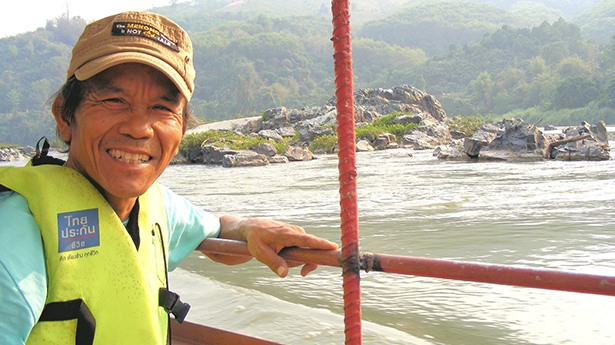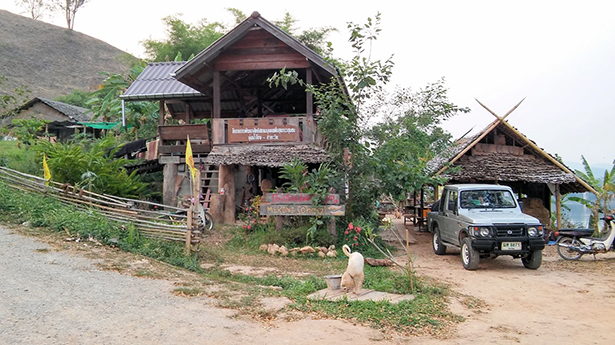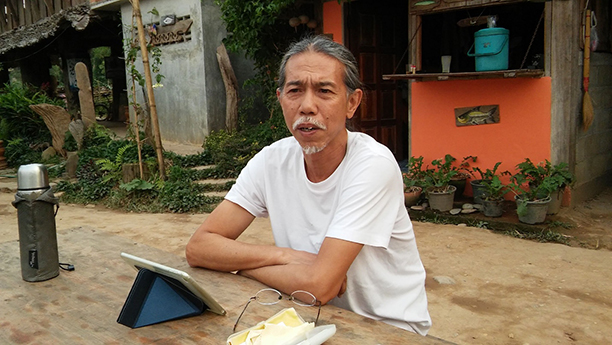
Photos and words by Gary Wockner
“Preserving ‘local knowledge’ is different than westernized ‘nature protection.’ We are protecting people’s habitats, their homes, lives, food, and voices.” – Chak Kineesee, Program and Outreach Director at the Mekong School for Local Knowledge
In April of 2016, I traveled to northern Thailand to meet with a Global Greengrants Fund grantee, the Mekong School for Local Knowledge. The School studies and promotes the indigenous knowledge of local Hill Tribes people which also involves protecting the Mekong River and fighting proposed dams on the River. Chak Kineessee, above, gave us a tour of a local forestry program and a longboat tour of the Mekong River near Chiang Khong, Thailand.

We started our day by meeting at the Mekong School for Local Knowledge which sits along the banks of the Mekong River in the small town of Chiang Khong just downstream from the Golden Triangle where Burma, Thailand, and Laos meet on the river. The school partners with Global Greengrants and International Rivers in its efforts to protect the Mekong River. China has built large dams upstream on the river that impact the lives of downstream residents here in Chiang Khong. Many more dams are proposed on the Mekong River in China, down through Thailand, and downstream through Vietnam and Cambodia. The river—and the local indigenous people and their livelihood—is severely threatened by dams that change the flow in the river, drown fish and bird habitat, drown villages and displace people, and submerge and erase local centuries-old knowledge of how to live sustainably in the landscape.
“We are the children of the Mekong River,” says Niwat Roykaew who is the Director of the Mekong School for Local Knowledge.
After our trip up the river, we visited with Niwat who is locally famous for boarding a Chinese ship that was attempting to blast the rocks out of the river a few years ago. Niwat kept the blasting at bay for several days until the Chinese government agreed to stop the work. Niwat speaks about the river in spiritual terms and sees the relationship between the river and the people as holistic. “When the river has problems, the people have problems,” he says. “When the people re-learn their local knowledge and their relationship with the river, they can rebuild themselves as well as fight to protect the river.”
I had a wonderful visit with the school, its staff, and its local environment. I wrote a longer photo essay about the trip which is posted New Internationalist website.

